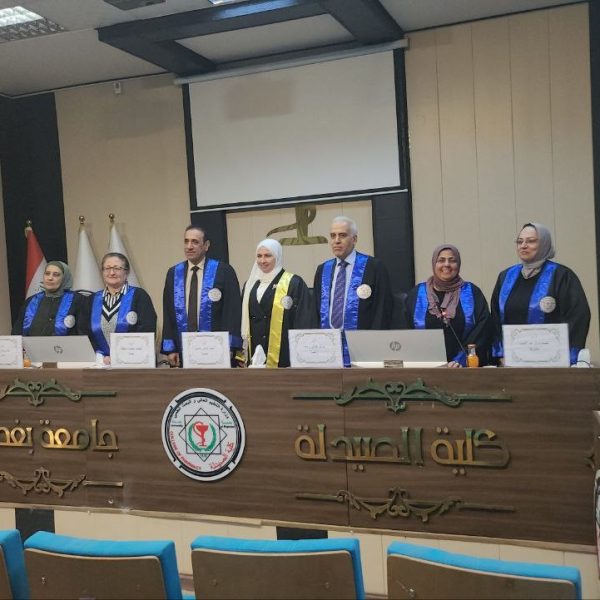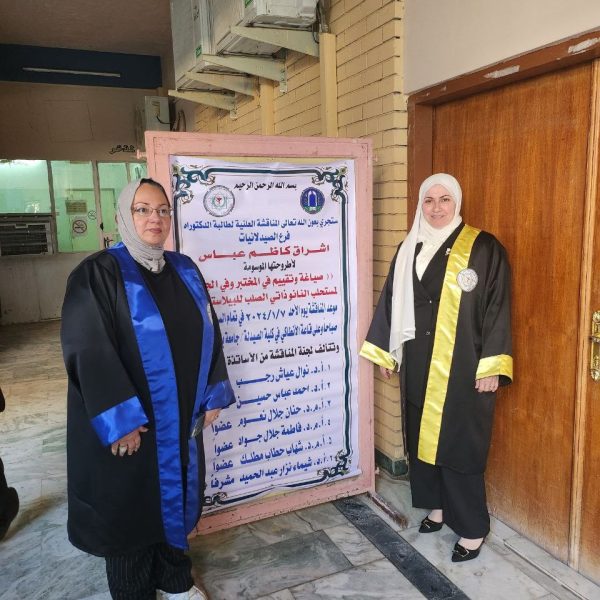The College of Pharmacy discussed the PhD dissertation entitled “Formulation, Characterization, and Ex-vivo/In-vivo Study of Bilastine as Solid Self-Nano Emulsion” by Ishraq Kadhum Abbas and the supervisor, Professor Dr. Shiamaa Nizar Abulhameed, in the Pharmaceutics Department. The study aimed to improve bilastine dissolution within oily dispersion and permeability and assume intestinal lymphatic transport involvement for such a nanosize system. Thirty self-nanoemulsion formulas were prepared by varying the amount of oleic acid as the oil phase in five different series of surfactant/co-surfactant mixture ratios, using cremophor EL 40 or tween 60 as surfactant and Transcutol as co-surfactant. The results of the optimum solid self-nanoemulsion formula (SS-F2) demonstrated good flowability with a significant improvement in dissolution as compared to the commercial tablet at 20 minutes. According to the solid-state characterization study, the optimally solidified nanosystem contained completely dissolved bilastine within oily components without any interactions with the excipients employed. After reconstituting, the optimum solid formula could keep the mean droplet size of the nanoemulsion at 78.41 nm. According to the bioavailability parameters obtained from the study, bilastine solid supersaturate self-nanoemulsion had 1.47 folds and 1.6 folds relative bioavailability in comparison with the marketed tablets and pure bilastine suspension, respectively. Considering the obtained results, supersaturate self-nanoemulsion, or solid self-nanoemulsion, is thought to be a promising method in the preparation of bilastine as an oral drug delivery system.




